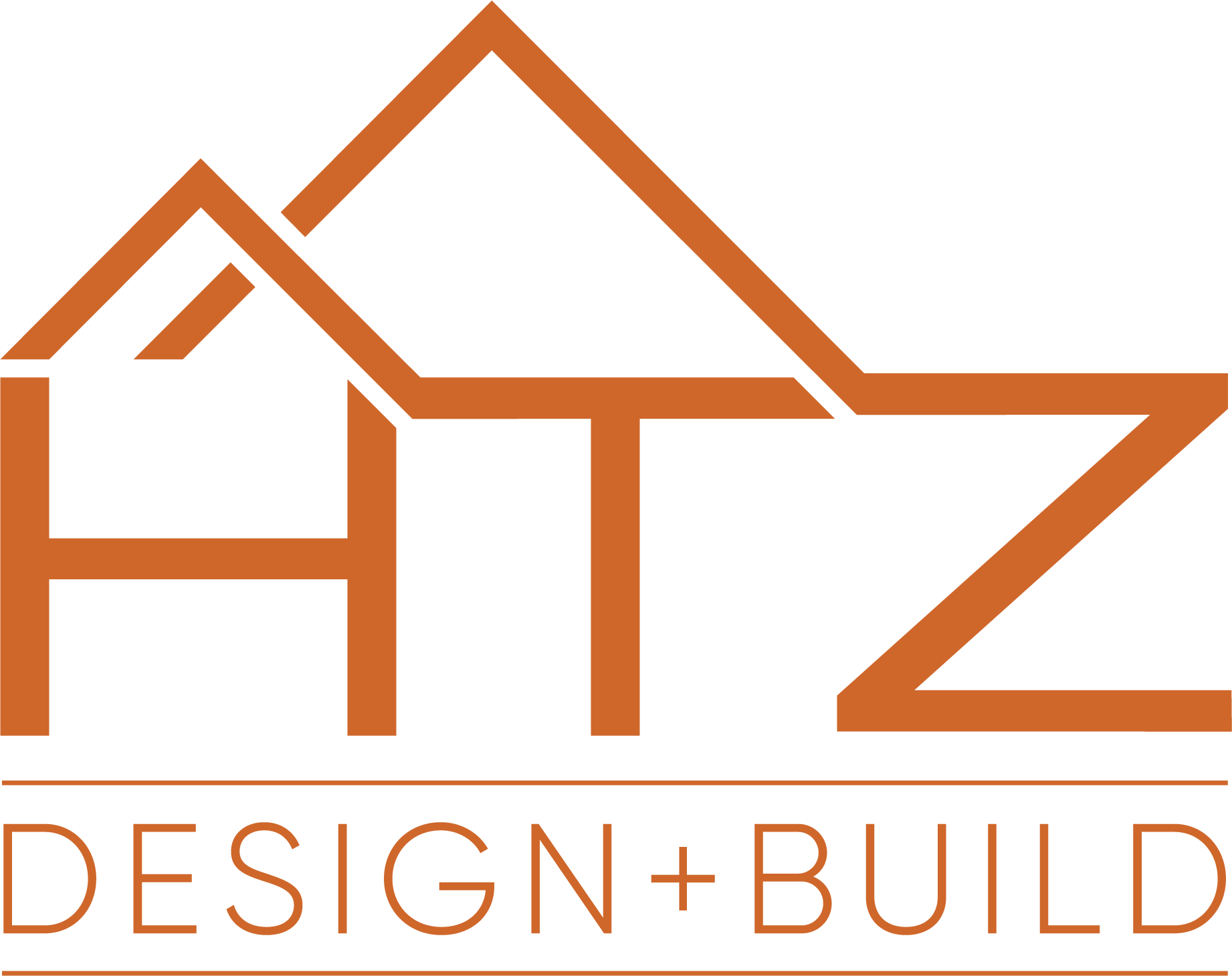When planning a home addition, many homeowners overlook a crucial step: understanding local zoning laws. These regulations play a significant role in the success of your project and can heavily influence your home improvement plans. In this article, you will learn key zoning regulations to keep in mind, the approval process for additions, and the consequences of neglecting these laws. By engaging with this content, you will gain clarity on how to navigate these regulations effectively, ensuring your project aligns with community standards and enhances accessibility. With HTZ Design Build’s experience, you can confidently move forward with your home addition plans.
The Role of Local Zoning Laws in Home Additions

Understanding local zoning laws is essential when considering home additions and home improvement projects, such as basements or extensions. These laws define the scope of your project, ensuring it aligns with neighborhood character and community planning. Collaborating with experts like htz design build can help protect your property rights and values, influencing mortgage options. Let’s explore how these factors impact your renovation journey.
Defining the Scope of Home Additions
When planning a home addition or any home improvement project, it’s crucial to understand how local zoning laws define the scope of your project. These regulations determine the size and height of your extension, as well as the approval of design elements like stairs or additional floors. A htz design build general contractor can help navigate these laws, ensuring your project aligns with the homeowner association‘s guidelines and meets safety standards, reducing the risk of flood-related issues.
- Understand local zoning regulations.
- Consult a general contractor for expert guidance.
- Ensure compliance with homeowner association rules.
- Plan for flood prevention strategies.
- Design your addition considering floor and stair configurations.
Impact on Neighborhood Character and Community Planning
Local zoning laws play a pivotal role in maintaining neighborhood character and guiding community planning. These regulations often dictate the height and overall design of additions, ensuring that a new bedroom or extension complements existing homes and retains aesthetic harmony. Additionally, if your plans require modifications beyond standard restrictions, you may need to apply for a variance, which can provide the flexibility needed to achieve your vision while still prioritizing safety and community standards. Engaging in home improvement projects or consulting with htz design build can further enhance your property‘s value.
Protecting Property Rights and Values
Understanding local zoning laws is fundamental in protecting your property rights and values during a home improvement and expansion. These regulations align your home addition with local building codes, ensuring that your htz design build project adheres to safety and construction standards. Consulting with an architect can help you navigate these rules, resulting in a well-planned home addition that enhances your property‘s value while respecting neighborhood aesthetics.
Understanding local zoning laws is crucial for your home addition plans. Now, let’s explore the key regulations you need to keep in mind.
Key Zoning Regulations to Know
Understanding residential zoning classifications is vital when planning your home addition with htz design build, as it determines what home improvement renovations are permissible on your property. Familiarizing yourself with setback requirements is equally crucial, ensuring your addition meets county standards while minimizing noise disturbances. Building height and aesthetic regulations also play a key role, ensuring your project harmonizes with the neighborhood’s character and enhances property value.
Understanding Residential Zoning Classifications
Understanding residential zoning classifications is a fundamental step in your home addition planning. These classifications dictate what types of renovations are permissible on your property and establish essential regulations regarding size, height, and design of your new space. Familiarizing yourself with these classifications ensures your project meets local requirements, which can help you avoid potential delays and ensure a smooth renovation process:
- Research your local zoning regulations for residential classifications.
- Identify any restrictions related to building size and height.
- Consult with local authorities to clarify any doubts regarding permissible renovations.
- Consider how these regulations impact the overall design of your home addition.
Exploring Setback Requirements for Valid Additions
Setback requirements are crucial considerations for your home addition project, as they dictate how far your new structure must be from property lines. Understanding these regulations helps you avoid potential fines and ensures that your addition remains compliant with local laws. Consulting a general contractor can provide insights into the specific setbacks applicable to your property, allowing you to design a functional and inviting space while respecting your neighbor’s rights and preserving community aesthetics.
Regulations Regarding Building Height and Aesthetics
Understanding the regulations regarding building height and aesthetics is essential when planning your home addition. These rules not only dictate how tall your extension can be but also ensure that the design blends harmoniously with the neighborhood’s character. By adhering to these zoning laws, you can avoid potential disputes with neighbors and enhance your property’s appeal, ultimately supporting your investment and maintaining community standards.
With the rules laid out, the next step is to venture into the approval process for your home addition. This journey requires careful planning and clear communication to turn your vision into reality.
Navigating the Approval Process for Home Additions
When navigating the approval process for home additions, understanding the necessary steps to obtain permits is essential for a successful expansion project. Compliance with local building codes safeguards your investment while engaging with local zoning boards and committees ensures you meet all requirements. Each of these topics provides crucial insights to facilitate your renovation journey effectively.
Steps to Obtain Permits for Expansion Projects
To obtain permits for your home expansion project, start by compiling all necessary documentation including site plans, design drawings, and details of the proposed work. Submit this information to your local zoning department or building department, where officials will evaluate your plans against local zoning laws and building codes. Engaging a general contractor can streamline this process, as they understand the nuances of zoning regulations and can help ensure that your application meets all requirements, increasing the likelihood of a timely approval.
Importance of Compliance With Local Building Codes
Compliance with local building codes is crucial for ensuring that your home addition is safe and up to standard. These codes address structural integrity, fire safety, and accessibility, safeguarding your investment and providing peace of mind. Engaging a general contractor can streamline this compliance process, guiding you through the necessary legalities and helping you avoid costly fines or project delays.
Engaging With Local Zoning Boards and Committees
Engaging with local zoning boards and committees is a critical step when planning your home addition. These entities are responsible for reviewing your project and ensuring that it complies with zoning laws and community standards. Developing a positive relationship with these boards can ease the approval process, allowing you to address any concerns they may have and gain valuable insights into local preferences that could enhance your project’s success.
Securing approval for your home addition is just the beginning. Ignoring local zoning laws can lead to costly mistakes and headaches you won’t want to face.
Consequences of Ignoring Local Zoning Laws
Ignoring local zoning laws can lead to significant issues for your home addition, including potential fines and legal complications stemming from violations. Risks associated with unpermitted construction may result in future problems that could jeopardize the integrity of your home and overall investment. In this section, we’ll discuss these consequences in detail, providing practical insights to help you avoid costly pitfalls.
Potential Fines and Legal Issues From Violations
Ignoring local zoning laws when planning your home addition can lead to severe consequences, including hefty fines and legal complications. For instance, if your project exceeds permitted building heights or setbacks, you may face penalties that could significantly increase your overall renovation costs. Engaging an experienced general contractor helps you navigate these regulations effectively, minimizing the risk of violations and safeguarding your investment from future legal issues.
Risks of Unpermitted Construction and Future Problems
Building without proper permits exposes you to a range of risks that can complicate your home addition project. Unpermitted construction may lead to significant fines, and in some cases, the need to dismantle or redo work that doesn’t comply with local zoning laws. You might also face complications when selling your home, as buyers often request proof of permits and adherence to regulations; failing to provide this can diminish your property‘s value and impact future investments.
Maintaining the Integrity of Your Home and Investment
Maintaining the integrity of your home and investment hinges on your adherence to local zoning laws during home additions. Ignoring these regulations can lead to structural issues that compromise the safety of your property, affecting both your living environment and potential resale value. By ensuring compliance with zoning requirements, you not only protect your investment but also enhance your home’s appeal and longevity, fostering a sense of community harmony and preserving the neighborhood’s overall character.
Ignoring local zoning laws can lead to costly mistakes. To avoid these pitfalls, familiarize yourself with the resources available to navigate these regulations effectively.
Resources for Understanding Local Zoning Laws
Accessing municipal planning documents is the first step in understanding zoning laws that affect your home addition. Utilizing online tools can also provide vital zoning information tailored to your area. Finally, consulting with professionals in land use and planning ensures you have expert guidance throughout your project. These avenues will help you navigate local regulations effectively.
Accessing Municipal Planning Documents and Resources
Accessing municipal planning documents is a vital step in understanding the zoning laws that impact your home addition project. These documents, which can often be found on your local government’s website, provide essential information regarding regulations, property lines, and any specific zoning classifications relevant to your area. Engaging with these resources allows you to make informed decisions, helping to ensure your renovation complies with local standards and contributes positively to your community.
Utilizing Online Tools for Zoning Information
Utilizing online tools for zoning information provides you with quick access to essential data regarding local regulations affecting your home addition. Many municipal websites offer interactive maps, zoning databases, and downloadable documents that clarify property classifications, setback requirements, and other crucial factors. By exploring these resources, you can make informed decisions early in your project, reducing the risk of delays and ensuring compliance with zoning laws.
Consulting With Professionals in Land Use and Planning
Consulting with professionals in land use and planning can significantly enhance your understanding of local zoning laws for home additions. These experts provide tailored advice based on your specific project and locality, addressing your unique concerns and needs. By seeking their support, you can navigate complex regulations effectively, ensuring your renovation aligns with community standards and ultimately safeguards your investment.
Zoning laws shape the communities we live in, and their effects are often seen in everyday life. Next, let’s look at real examples that show just how crucial these laws can be.
Case Studies Highlighting the Importance of Zoning Laws
Successful home additions within legal frameworks demonstrate how understanding local zoning laws can lead to enhanced property values and community growth. Conversely, lessons learned from zoning law violations highlight the risks of neglecting these regulations, potentially resulting in costly consequences. In this section, you will explore real-life examples and insights that illustrate the critical role zoning plays in your home renovation journey.
Examples of Successful Home Additions Within Legal Frameworks
Successful home additions often stem from careful adherence to local zoning laws, which can significantly enhance property value and ensure community cohesion. For example, a homeowner who expanded their living room by adding a sunroom complied with setback regulations, allowing them to increase natural light while preserving the neighborhood’s character. Understanding zoning requirements not only facilitated this expansion but also kept the project within legal frameworks, providing peace of mind and a smoother renovation process:
- A homeowner added a sunroom while respecting setback requirements.
- Compliance with local zoning laws preserved neighborhood aesthetics.
- The project ultimately increased property value and homeowner satisfaction.
Lessons Learned From Zoning Law Violations
Ignoring local zoning laws can lead to significant setbacks in your home addition project, such as facing fines or having to remove unpermitted structures. One homeowner learned this the hard way when they built a deck too close to their property line, resulting in a costly violation and the necessity of dismantling the addition. By understanding zoning regulations from the outset, you can avoid these pitfalls, ensuring your project is compliant and ultimately enhancing the value of your property while maintaining neighborhood harmony.
Real-Life Impacts of Zoning on Home Value and Community Growth
Understanding the real-life impacts of zoning on home value and community growth is crucial for homeowners considering additions. Properly adhering to zoning laws can increase your property value by enhancing its appeal and ensuring it complements the surrounding neighborhood. For instance, a well-planned expansion that aligns with local regulations can elevate the overall aesthetics of the area, fostering a sense of community that attracts more buyers, thereby contributing positively to your investment and the community as a whole.
Conclusion
Understanding local zoning laws is essential for successful home additions, as they define project parameters and ensure compliance with community standards. By familiarizing yourself with these regulations, you can protect your property rights, enhance your home’s value, and maintain neighborhood harmony. Consulting with professionals and engaging local authorities can streamline the approval process and prevent costly violations. Ultimately, respecting zoning laws safeguards your investment and contributes to a thriving community atmosphere.



